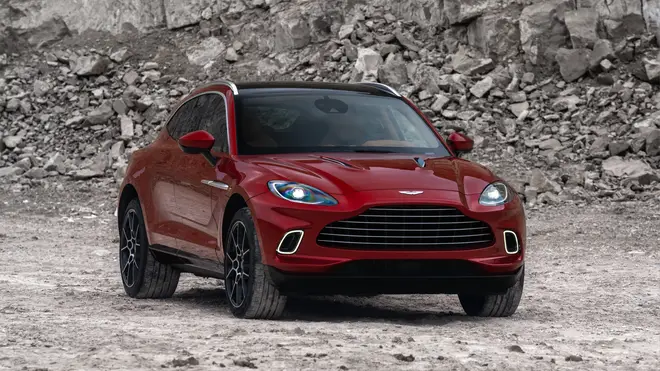
Clive Bull 1am - 4am
6 May 2021, 15:04

More than half of the vehicles the company sold in the first three months of 2020 were its new SUV model.
The launch of a new SUV has revived flagging sales at Aston Martin, putting it on track to sell more cars this year than it did in 2019.
More than 1,350 of the luxury vehicles – long associated with the James Bond film franchise – were bought by customers in the first three months of this year, the company told shareholders on Thursday.
That compares with just 578 in the same period a year earlier.
More or less the entire increase was down to the firm’s first ever SUV, which launched last year.
The company sold more than 740 Aston Martin DBX models, as the SUV is called, making up 55% of all sales in the first three months of the year.
Chief executive Tobias Moers said: “I am pleased with our performance in the first three months of the year, delivering results in line with our expectations of good growth and progress on the path to improved profitability and cash generation.”
DBX is built to go anywhere, even Tatooine…
📸Dennis Wierenga #AstonMartin #MayThe4thBeWithYou #DBX pic.twitter.com/LgBAimH0Ub
— Aston Martin (@astonmartin) May 4, 2021
Aston Martin struggled to sell cars last year, with the number that customers bought dropping by 42% to just 3,394 across the 12 months.
But, as the year ended, there were signs of a return to near-normal levels, with sales in the last three months of 2020 only a little lower than they had been a year earlier, dominated by the DBX.
It shows the increasing popularity of SUVs on roads around the world.
A study from the New Weather Institute last month found that while a decade ago only one in 10 cars sold in the UK was an SUV, the figure is now four in 10.
The International Energy Agency has found that SUVs – which emit 25% more carbon than a medium-sized car – were the second biggest contributor to an increase in global carbon dioxide emissions between 2010 and 2018, ahead of heavy industry and aviation.
Aston Martin said it is on track to sell around 6,000 cars this year, leaving its 2021 guidance unchanged.
It expects this to rise to around 10,000 vehicles in the year ending 2025, and will make £2 billion in revenue that year, the board said.
Revenue reached £224.4 million in the first quarter of 2021, a 153% increase, with pre-tax loss dropping from £110.1 million to £42.2 million.